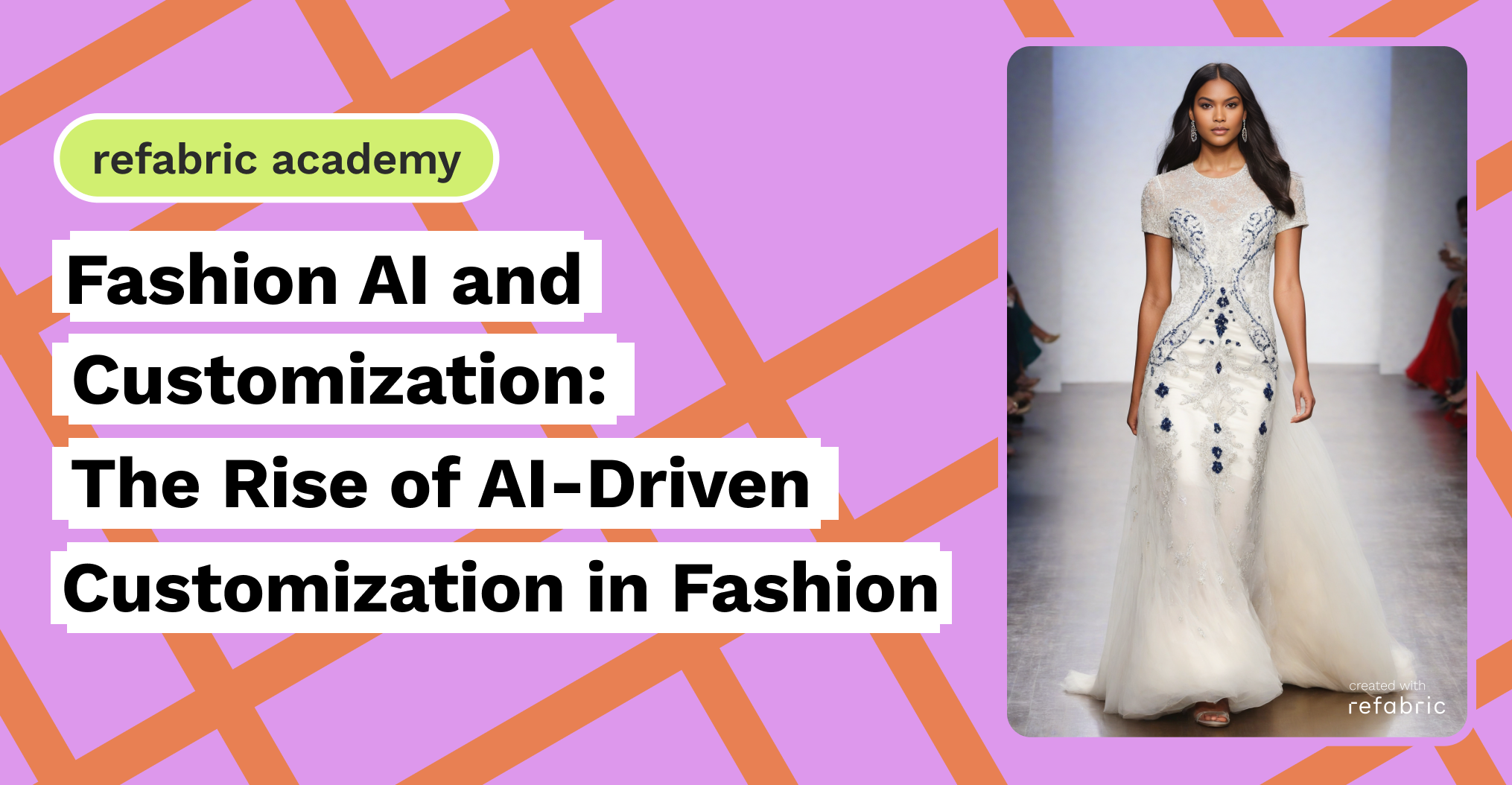In the ever-evolving fashion industry, one of the most exciting advancements is the rise of fashion AI-driven customization. This innovative approach allows brands to offer made-to-order clothing and accessories tailored to individual customer specifications, transforming the shopping experience and setting new standards for personalized fashion.
The Power of in Fashion Customization
Artificial Intelligence (AI) has made significant strides in various industries, and fashion is no exception. By leveraging AI algorithms and machine learning, fashion brands can now analyze vast amounts of data to understand consumer preferences and behaviors. This data-driven insight is the cornerstone of AI-driven customization, enabling brands to create personalized fashion items that cater to the unique tastes and needs of each customer.
One of the key technologies driving this transformation is predictive analytics. By analyzing past purchase data, browsing patterns, and even social media activity, fashion AI can predict what styles, colors, and fabrics a customer is likely to prefer. This predictive capability allows brands to offer highly personalized recommendations, ensuring that each customer finds exactly what they are looking for.
Made-to-Order Fashion: A Sustainable Solution
The rise of AI-driven customization is not only about enhancing the customer experience; it also addresses significant sustainability issues within the fashion industry. Traditional mass production methods often lead to overproduction, resulting in excessive waste and unsold inventory. Made-to-order fashion, facilitated by fashion AI, offers a more sustainable alternative.
By producing items only when they are ordered, brands can significantly reduce waste and minimize their environmental footprint. This approach also allows for better resource management, as materials are used more efficiently. Moreover, the ability to create personalized items means that customers are more likely to be satisfied with their purchases, reducing the likelihood of returns and further decreasing waste.
Enhancing the Customer Experience with Fashion AI
AI-driven customization is revolutionizing the way customers interact with fashion brands. One of the most notable advancements is the development of virtual try-on technologies. Using augmented reality (AR) and fashion AI, customers can now virtually try on clothes and accessories from the comfort of their homes. This technology provides a more accurate representation of how items will look and fit, making online shopping more reliable and enjoyable.
Furthermore, fashion AI enables brands to offer a more interactive and engaging shopping experience. For instance, customers can input their measurements and style preferences into an AI-powered platform, which then generates personalized recommendations and design options. Some brands even offer 3D visualization tools, allowing customers to see a virtual model of their customized item before placing an order.
The Future of Fashion: Fully Personalized Wardrobes
The potential of AI-driven customization goes beyond individual items of clothing. As technology continues to advance, we can expect to see the emergence of fully personalized wardrobes. Fashion AI can help customers curate a cohesive and personalized wardrobe that aligns with their lifestyle, preferences, and even upcoming trends.
For example, an AI-powered wardrobe assistant could analyze a customer’s existing clothing collection and suggest new pieces that complement their style. It could also provide styling tips and outfit suggestions based on the customer’s schedule, weather forecasts, and personal preferences. This level of personalization not only enhances the shopping experience but also helps customers make more informed and sustainable fashion choices.
Challenges and Ethical Considerations
While the rise of AI-driven customization offers numerous benefits, it also presents certain challenges and ethical considerations. Data privacy is a significant concern, as the collection and analysis of personal data are integral to AI’s predictive capabilities. Brands must ensure that they handle customer data responsibly and transparently, complying with data protection regulations and maintaining customer trust.
Additionally, there is the risk of perpetuating bias in AI algorithms. If not carefully managed, AI systems can reinforce existing biases in fashion, such as those related to body size, gender, and cultural preferences. It is crucial for brands to continuously monitor and refine their AI models to ensure inclusivity and fairness in their customization offerings.
all things considered, AI-driven customization is transforming the fashion industry, offering a new level of personalization that caters to individual customer specifications. By harnessing the power of fashion AI, brands can create made-to-order clothing and accessories that enhance the customer experience, promote sustainability, and set the stage for a future where fully personalized wardrobes are the norm. As technology continues to evolve, the possibilities for AI-driven customization in fashion are limitless, promising a more tailored and sustainable future for the industry.
